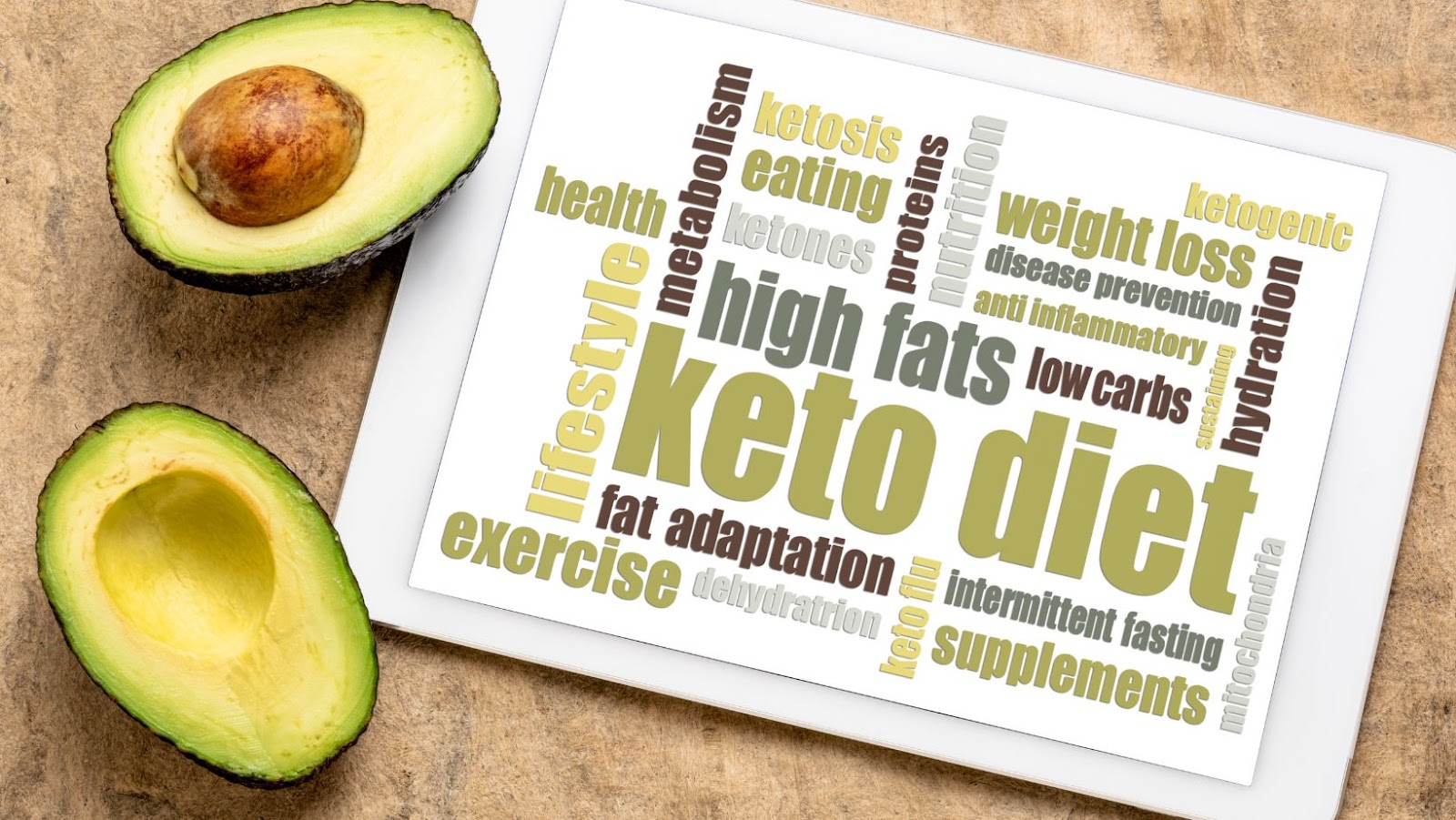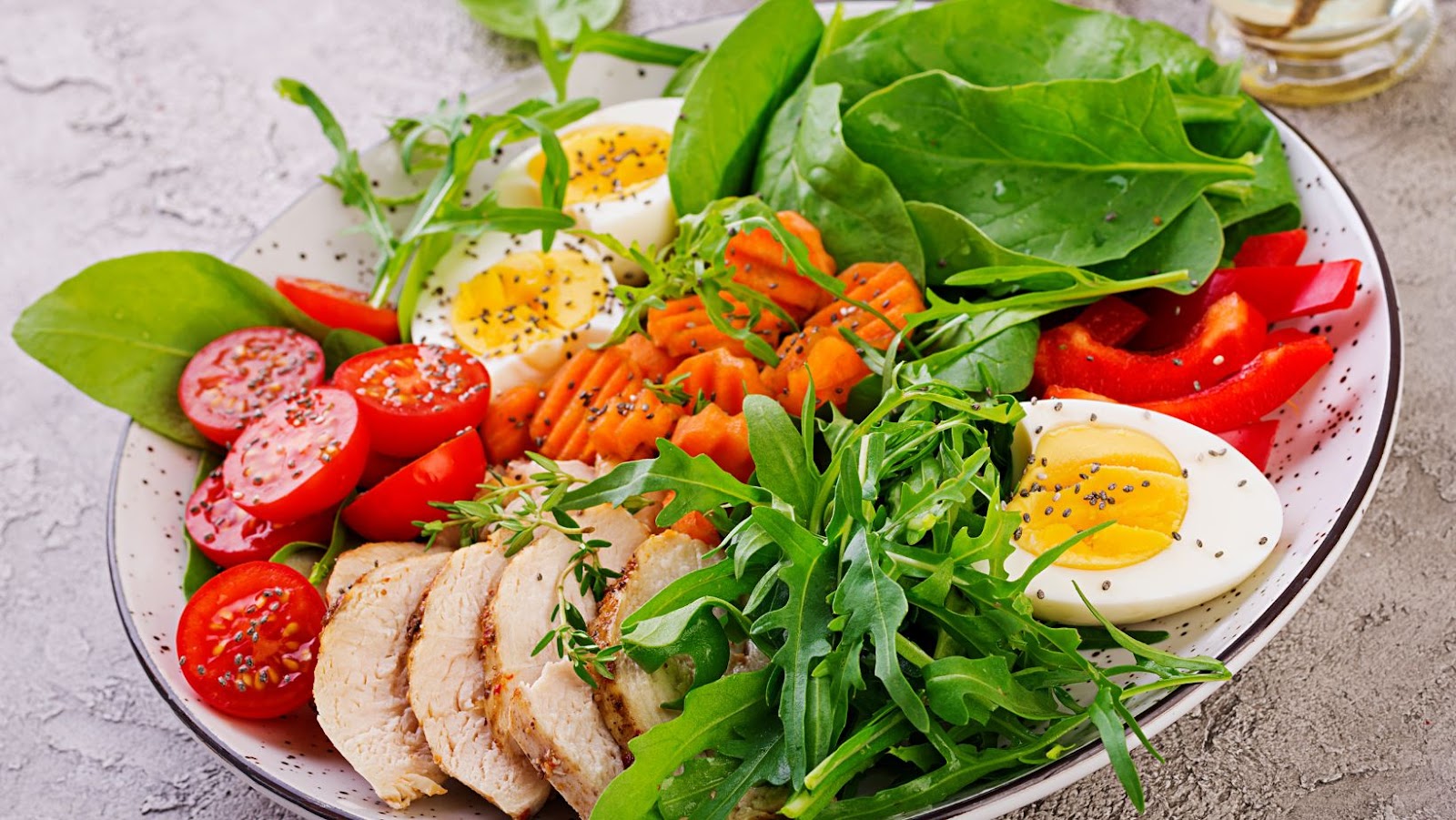
Keto for Women Over 50
Sticking to a keto diet can be challenging for anyone, but as women over 50, our bodies have different needs and considerations. However, with the right approach and mindset, it’s entirely possible to embrace the ketogenic lifestyle and achieve your health goals. In this article, I’ll share some valuable tips on how to stick to a keto diet specifically tailored for women over 50.
First and foremost, it’s important to consult with your healthcare provider before starting any new diet or exercise regimen. They can provide personalised guidance based on your unique health profile. Once you have the green light, it’s time to focus on nutrition.
When following a keto diet as a woman over 50, prioritise nutrient-dense foods that support overall well-being. Opt for high-quality sources of protein like lean meats, fish, eggs, and tofu. Include plenty of healthy fats from sources such as avocados, olive oil, nuts, and seeds. Additionally, load up on low-carb vegetables like leafy greens and cruciferous veggies.
The Benefits of Keto for Women Over 50
When it comes to sticking to a keto diet, women over 50 can experience numerous benefits that cater to their unique needs. Let’s explore some of the advantages that following a keto lifestyle can offer:
- Weight Management: As we age, it can become more challenging to maintain a healthy weight. The keto diet, with its focus on low carb and high fat intake, has been shown to be effective in promoting weight loss and managing weight in women over 50. By reducing carbohydrate consumption and increasing healthy fats, the body enters a state of ketosis where it burns stored fat for energy.
- Increased Energy Levels: Many women in their fifties often complain about feeling tired or experiencing a lack of energy throughout the day. Adopting a keto diet can help combat this issue by providing a steady source of energy from fats instead of relying on carbs for fuel. By stabilising blood sugar levels and avoiding fluctuations in insulin production, the body experiences sustained energy levels throughout the day.
- Hormonal Balance: Menopause brings about significant hormonal changes that can lead to various symptoms like hot flashes, mood swings, and weight gain. The ketogenic diet has shown promising results in helping regulate hormone levels and alleviate menopausal symptoms in women over 50. By reducing sugar intake and focusing on nutrient-dense foods, you may experience improved hormonal balance.
- Cognitive Function: Another benefit worth mentioning is the potential improvement in cognitive function that the keto diet offers for women over 50. Studies have suggested that ketones produced during ketosis provide an alternative source of fuel for the brain, potentially enhancing mental clarity and focus.
- Gut Health: A well-balanced gut microbiome plays a crucial role in overall health as we age. The ketogenic diet emphasises whole foods like vegetables, healthy fats,and proteins while limiting processed carbohydrates which could positively impact gut health by promoting diversity among gut bacteria.
Understanding the Basics of the Keto Diet
When it comes to sticking to a keto diet, especially for women over 50, it’s crucial to have a solid understanding of the basics. The ketogenic diet is a low-carb, high-fat eating plan that has gained popularity for its potential benefits in weight loss and overall health improvement. In essence, it aims to put your body into a state of ketosis, where it primarily burns fat for fuel instead of carbohydrates.
To follow the keto diet successfully, you need to drastically reduce your carb intake and increase your consumption of healthy fats. This shift in macronutrient ratios prompts your body to enter ketosis, as it lacks readily available glucose from carbs and starts breaking down stored fat for energy production.
Here are some key principles that will help you navigate the world of ketogenic eating:
- Limit Carbohydrates: On a keto diet, you’ll typically aim to restrict your carbohydrate intake to around 20-50 grams per day. This means avoiding starchy foods like bread, pasta, rice, and potatoes while focusing on low-carb vegetables like leafy greens and cruciferous veggies.
- Embrace Healthy Fats: Since carbs are limited on the keto diet, healthy fats take centre stage as your primary source of energy. Avocados, nuts and seeds (such as almonds and chia seeds), coconut oil, olive oil, and fatty fish like salmon are all excellent choices.
- Moderate Protein Intake: While protein is an essential component of any balanced diet, excessive protein consumption can hinder ketosis by converting into glucose through a process called gluconeogenesis. Women over 50 should aim for moderate protein intake while prioritising high-quality sources such as lean meats (like chicken or turkey), eggs, dairy products (if tolerated), and plant-based proteins like tofu or tempeh.
- Stay Hydrated: Adequate hydration is vital for overall health and is particularly important when following a ketogenic diet. Drinking plenty of water helps support digestion, promotes detoxification, and assists in maintaining electrolyte balance.
- Monitor Electrolytes: As your body adjusts to the keto diet, you may experience changes in electrolyte levels. It’s crucial to ensure adequate intake of sodium, potassium, and magnesium through foods like avocados, leafy greens, nuts, seeds, and supplementation if necessary.

